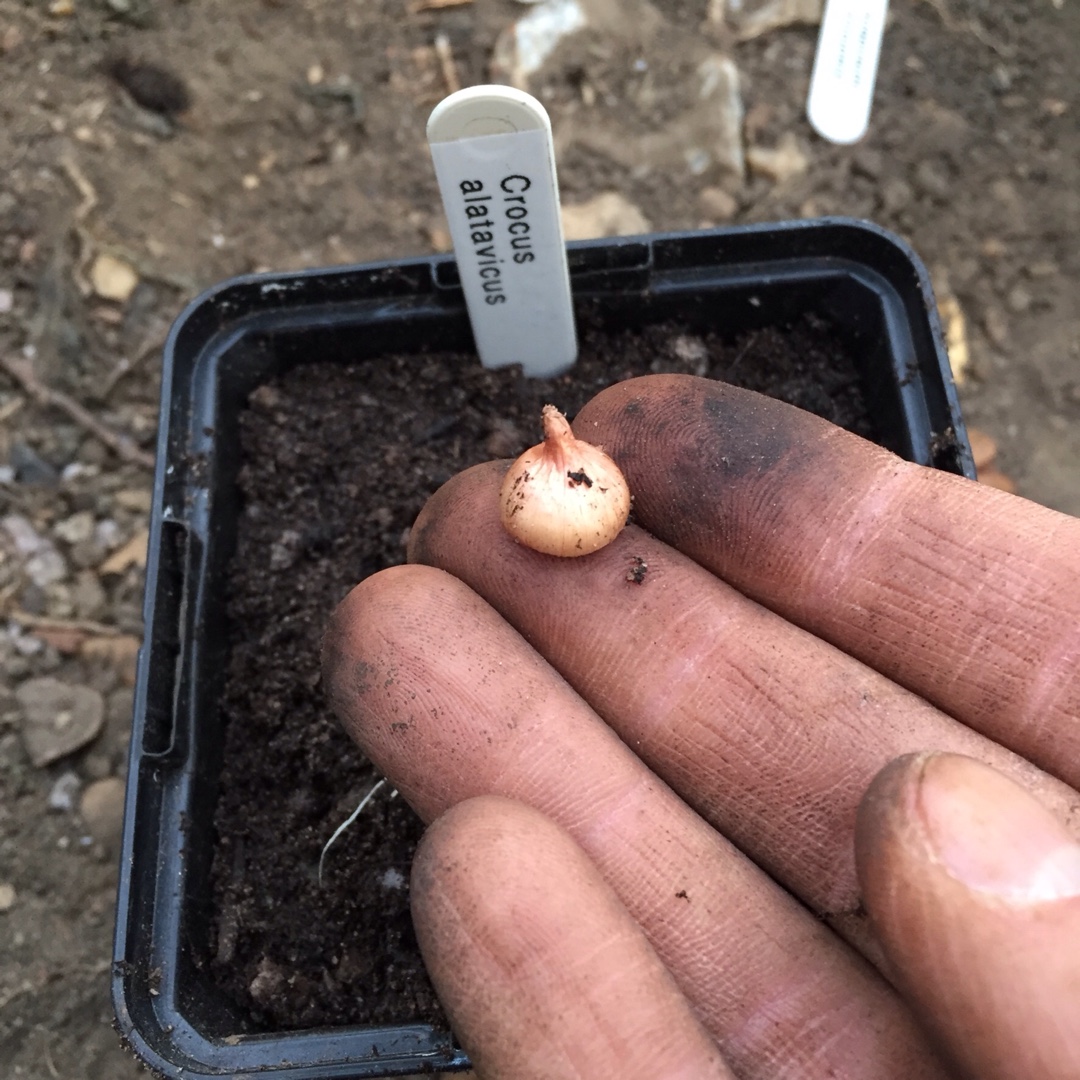
Crocus alatavicus
Crocus (Species) Alatavicus Crocus
Crocuses are plants which grow from corms, whose flowers can appear in Autumn, Winter or Spring depending on the species and cultivar. They are typically native to woodlands, scrub and meadows in a variety of conditions across Northern Africa, Middle East, Southern and Central Europe and across to Asia and China. They produce grass like foliage, with a central white stripe, and cup shaped flowers ranging from whites, mauves, lilacs and yellows. In cultivation, spring crocus see foliage emerge followed by flowers. They are suitable for planting in groups in borders or rock gardens and some species naturalise in grass. Most require a well draining gritty soil and like full sun or dappled shade. In heavier soils, it is worth adding grit to help lighten the soil and improve drainage. Most crocus propagate through production of new corms, however a couple of species do very well naturally via seed. Crocus alatavicus is a spring flowering species crocus that originates from Asia and China, and bears ivory white flowers with a deep purple brown speckling on the outside.
Contributed by @richard.spicer.7906
-
Full sun to partial shade
-
Very little water
-
Full Frost Hardy: 5F (-15°C)
-
Light and free draining
Common name
Crocus (Species) Alatavicus Crocus
Latin name
Crocus alatavicus
type
Flowering corms
family
Iridaceae
ph
5.0 - 7.0 Acid - Neutral
Plant & bloom calendar
-
Best time to plant
-
When the plant will bloom
full grown dimensions
 0.01 M
0.10 M
0.01 M
0.10 M
Crocus alatavicus
Crocuses are plants which grow from corms, whose flowers can appear in Autumn, Winter or Spring depending on the species and cultivar. They are typically native to woodlands, scrub and meadows in a variety of conditions across Northern Africa, Middle East, Southern and Central Europe and across to Asia and China. They produce grass like foliage, with a central white stripe, and cup shaped flowers ranging from whites, mauves, lilacs and yellows. In cultivation, spring crocus see foliage emerge followed by flowers. They are suitable for planting in groups in borders or rock gardens and some species naturalise in grass. Most require a well draining gritty soil and like full sun or dappled shade. In heavier soils, it is worth adding grit to help lighten the soil and improve drainage. Most crocus propagate through production of new corms, however a couple of species do very well naturally via seed. Crocus alatavicus is a spring flowering species crocus that originates from Asia and China, and bears ivory white flowers with a deep purple brown speckling on the outside.
Planting
From Early Autumn TO Mid Autumn
Plant crocus corms in Autumn for flowering the following Spring. Crocus corms have a flattened base, and slightly pointed top. They should be planted in moist, free-draining soil that has been enriched with organic compost or well-rotted manure, in a sunny, or partially sunny site. Plant the corms before the first frost.
Flowering
From Late Winter TO Early Spring
Crocus flowers are amongst the very first flowers to appear in late Winter or early Sring








